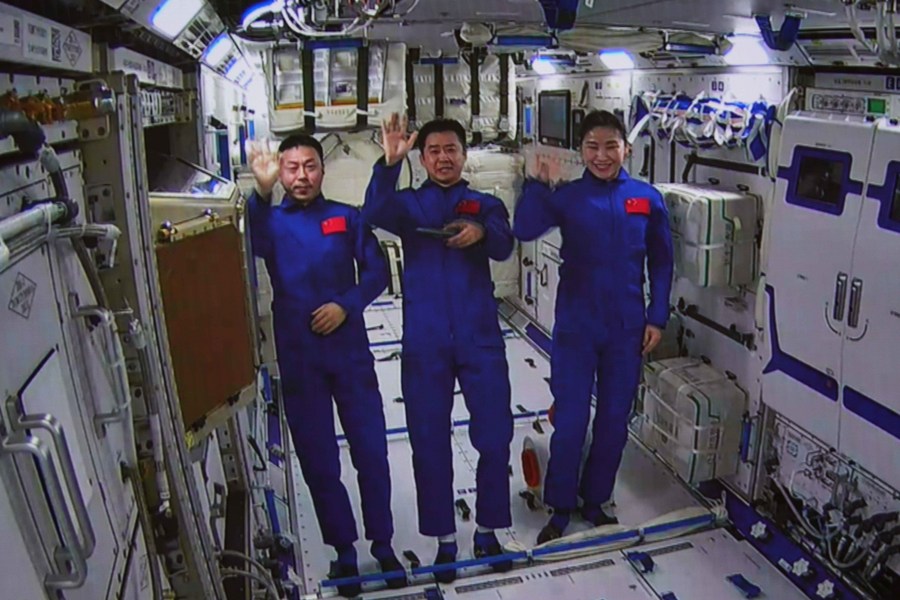Energy particle detector helps Shenzhou-14 crew conduct EVAs
 0 Comment(s)
0 Comment(s) Print
Print E-mail Xinhua, August 25, 2022
E-mail Xinhua, August 25, 2022

The energy particle detector deployed on Wentian, the first lab module of China's space station, will help the Shenzhou-14 crew members carry out extravehicular activities (EVAs), according to the China Manned Space Agency (CMSA).
The Wentian module has been operating stably in orbit for nearly a month, and the Shenzhou-14 crew have been training and preparing for their first EVAs during the mission.
Particle radiation is a key threat to the safety of spacecraft and astronauts. The energy particle detector deployed on Wentian can help astronauts choose the time of their EVAs to ensure safety in the high-radiation environment.
The detector is mainly used to measure the energy, direction and flux of various particles in the orbit of the space station, including high-energy protons, electrons, heavy ions and neutrons, so as to provide key reference data for astronaut EVAs, space materials, biological experiments, and the safety of the space station.
It has four detection modules, which can detect various types of particles and a wide energy spectrum range, according to the CMSA.
The detector's accurate and quantitative measurement of the spatial and temporal distribution of particle radiation can provide first-hand data for astronauts to choose the time window for EVAs.
Particle radiation is also an important threat to spacecraft in orbit. Statistics show that more than 40 percent of spacecraft faults are caused by particle radiation.
Accurate particle radiation detection is a key parameter for the space station's in-orbit risk avoidance, fault location and recovery, and the life evaluation and replacement of key components, according to the CMSA.
One of the important missions of the space station is to provide a platform for new-material experiments and biological experiments. Accurate particle detection will provide key research parameters for these experiments, because particle radiation is a key environmental factor in the difference between outer space and the Earth's surface.
China on July 24 launched the Wentian lab module, which consists of a work cabin, an airlock cabin and a resource cabin. It functions both as a backup of the core module and as a powerful scientific experiment platform.






Go to Forum >>0 Comment(s)